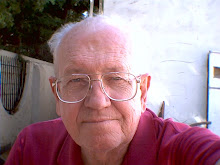The degeneration from open to closed society is unusually well documented in the decline of Athenian Greece (Approximately from the 6th to the 4th century BC). The open society lasted perhaps only two hundred years before it was thwarted in what seems to be the usual course of events in human history. One of that open society’s great proponents was Socrates. His forced suicide was one of the steps from the open to the closed society. One of his students, Plato, professed to be a believer in this democracy, but was in fact an enemy of it. Plato’s descriptions of politics in his book The Republic have little to do with any republic. His descriptions correspond more closely to a society having a rigidly defined structure that depends heavily on each person performing his duty under the direction of someone above him. At the top of this structure is an all-powerful leader: i.e., a dictator. Karl Popper takes Plato directly to task and shows convincingly that Plato has largely been misinterpreted as a supporter of the open society. Popper wrote in TheSpell of Plato , p. 103:
Like other totalitarian militarists and admirers of Sparta, Plato urges that the all-important requirements of military discipline must be paramount, even in peace, and that they must determine the whole life of all citizens; for not only the full citizens (who are all soldiers) and the children, but also the very beasts must spend their whole life in a state of permanent and total mobilization. “The greatest principle of all,” he writes, “is that nobody, whether male or female, should ever be without a leader. Nor should the mind of anybody be habituated to letting him do anything at all on his own initiative, neither out of zeal, nor even playfully. But in war and in the midst of peace, to his leader he shall direct his eye, and follow him faithfully. And even in the smallest matters he should stand under leadership. For example, he should get up, or move, or wash, or take his meals . . . only if he has been told to do so . . . In a word, he should teach his soul, by long habit, never to dream of acting independently, and to become utterly incapable of it. In this way the life of all will be spent in total community. There is no law, nor will there ever be one, which is superior to this, or better and more effective in ensuring salvation and victory in war. And in times of peace, and from the earliest childhood on should it be fostered: this habit of ruling others and of being ruled by others. And every trace of anarchy should be utterly eradicated from all the life of all the men, and even of the wild beasts which are subject to men.”
This certainly sounds like modern-day Cuba to me.
Many countries have tried to establish republics, but failed to do so. If they were using Plato’s description of a Republic, their efforts were doomed from the start.

No comments:
Post a Comment